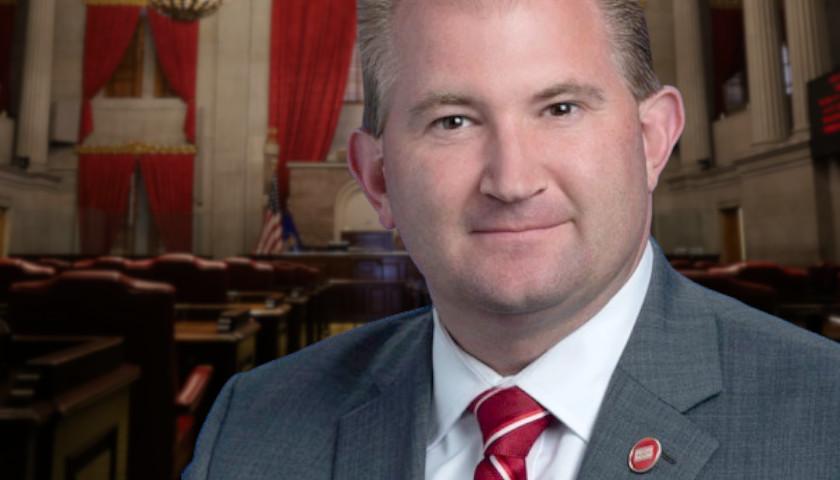Two separate bills that stipulate that the input of either the state or local legislative body is required with regard to the resettlement of refugees have moved through the House State Committee.
In other words, both proposed pieces of legislation prohibit Tennessee’s governor from acting alone in making decisions regarding refugee resettlement.
The proposals came about as the result of a series of events that occurred in late 2019.
President Donald Trump issued Executive Order 13888 in September 2019 that required the development of a process for the written consent of both state and local governments as to the resettlement of refugees before refugees are resettled.
In December 2019, Governor Bill Lee announced his consent to initial refugee resettlement for a period of one year.
HB1929 was filed for introduction by Majority Assistant Leader and Representative Ron Gant (R-Rossville) in January. The bill prohibits the governor from making a decision or obligating the state in any way with regard to refugee resettlement without authorization of the Tennessee General Assembly by a joint resolution.
HB1578, sponsored by Representative Bruce Griffey (R-Paris), takes the default position that both the state and local governments refuse to consent receiving any refugees for the purposes of resettlement, except as otherwise provided for in the law.
The bill goes on to detail how a local government can consent to receiving refugees for the purposes of resettlement:
1. By the adoption of a resolution or ordinance by two-thirds vote of the local government, and
2. If the resolution or ordinance specifies the number of refugees to be received and each location for resettlement.
If a local government passes such a resolution or ordinance, then the local government provides notice to each member of their state legislative delegation.
Then, legislation must be proposed by a member of the Tennessee General Assembly, passed by a two-thirds majority in each chamber and then signed into law by the governor.
Refugees, unlike most other immigrants, are given a social security number and have immediate access to welfare programs such as Medicaid and food stamps.
The Center for Immigration Studies (CIS) put out a report in March, “The Fiscal Impact of Refugee Resettlement – No Free Lunch for Taxpayers.”
With refugees who enter the country as adults, there is no plausible model that comes close to suggesting that they will be net fiscal contributors to the economy, says CIS.
Due to administrative expenditures by the State Department and Office of Refugee Resettlement as well as welfare costs, the costs of refugees is higher than that of other immigrants.
Refugees with an entry age range of 25 to 64 years result in a negative impact for taxpayers somewhere between $65,000 per person as a best case and $197,000 per person as a worst case, according to CIS.
Leader Gant said in his presentation of the bill to the House State Committee on June 4 that the federal government has admitted that resettlement costs have shifted to states shortly after passage of the Refugee Resettlement Act of 1980.
“This involuntary cost shifting to the state creates an unconstitutional bypass of the Tennessee General Assembly’s exclusive power to appropriate public money,” Leader Gant explained.
As Gant reminded the committee, “It is the reason that Tennessee initiated a refugee resettlement lawsuit back in 2017. That lawsuit is still ongoing, and will like require additional action in the months ahead.”
The lawsuit against the federal government’s resettlement of refugees in the state is based on the 10th Amendment. Though a federal judge dismissed the lawsuit, an appeal has been filed on behalf of the state, The Tennessee Star reported.
According to recent data from the Department of TennCare, Leader Gant reported, there are 5,648 refugees in Tennessee at a cost of $5.8 million state taxpayer dollars annually.
Leader Gant said that the legislation is not about whether you are for or against refugee resettlement, but who appropriates the money for the programs.
Majority Assistant Floor Leader Chris Todd (R-Madison County), who sits on the House State Committee, said he and Leader Gant met with the governor, during which they all agreed that refugee resettlement costs the state money and that the appropriation of funds is the responsibility of the General Assembly.
Representative Harold Love, Jr. (D-Nashville) asked if there was data on what financial contributions, such as sales tax, refugees make and expressed concern that oftentimes the discussions regarding expenditures overshadows contributions, including those that are non-financial in nature.
After additional comments on the contributions by refugees, Leader Todd recognized Committee Chair Kelly Keisling (R-Byrdstown) for his indulgence on topics that were not related to the bill. Representative Todd then reminded fellow Committee members that the matter is of a constitutional nature.
Later in the same House State Committee meeting, Representative Griffey’s bill was taken up.
Living under a representative form of government with elected leaders, said Griffey in presenting his bill, the local communities should have the opportunity to have input on issues impacting them.
In this case, since local dollars are involved for things like school costs, Representative Griffey said the local legislative bodies ought to have a vote by two-thirds followed by a two-thirds vote by the legislature.
Both bills passed through the State House Committee and have been referred to the House Calendar & Rules Committee to be put on calendar for a vote by the entire body on the House floor.
HB1929 passed with a voice vote and Democrat Representatives Bill Beck (Nashville), Harold Love, Jr. (Nashville), Jason Powell (Nashville) and Rick Staples (Knoxville), requesting to be recorded as voting No.
Representative Griffey requested a roll call vote on his HB1578. Of the 16 members present, 12 Committee members voting Aye were Republicans and the four Democrats all voted No.
The companion Senate bills, SB2730 and SB1567, are both awaiting action in the State & Local Government Committee.
Since it appears that the Tennessee General Assembly is working towards adjourning sine die this week, neither of these bills may become law this year and would have to be refiled next year.
—
Laura Baigert is a senior reporter at The Tennessee Star.






It is clear, the Tennessee taxpayer, must increase state sales tax by 10% to provided services for illegal aliens already here. This does not even include the expected increase in services for illegal aliens expected to be resettled here in the next 5 years.
I am in favor of HB1578. The dumping of refugees in Tennessee has been a cash cow for Catholic Charities for way too long.
This bill not only needs to become law, but any state and local public money that was funneled to resettle refugees here needs to be clawed back. It’s a disgusting corrupt racket and it is sad to see Lee’s involvement in the fraud.
Please worry about more important things like funding education, expanding medicaid and getting the taxpayer some stimulus checks The refugee issue is settled Let the Governor do his will
In the 30+ years that I have been forced to watch what the Legislature does, they have never put the most important issues first, no matter which Party was in charge.
We elected Governor Lee in part because he was a businessman, but he took up one of his wife’s causes which we will have to pay as taxpayers. The top-down model might have served him well in business but with constituents not so much. Governor Lee is wealthy, given our state budget concerns maybe he can use his own money for this purpose if he feels so strongly?
Wow another jealous Democrat female. You, madam are a dumb broad.